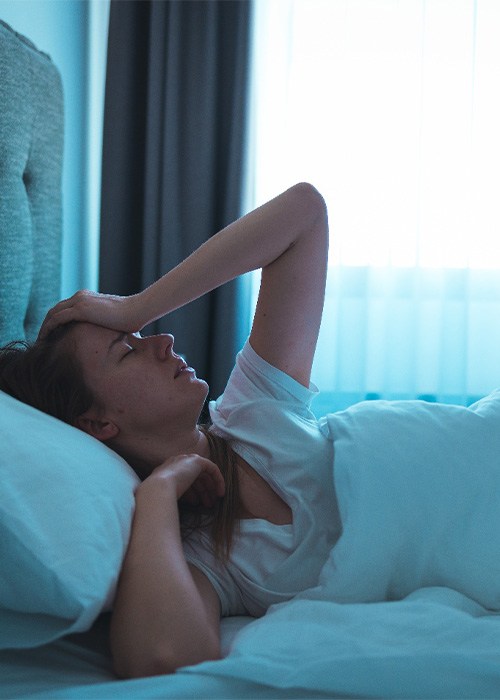Central Sleep Apnea: The Less Common Sleep Disorder
Confirm the Cause of Your Sleep Problems

While most people have heard of obstructive sleep apnea (OSA), central sleep apnea (CSA) is less common, and much less understood, affecting only about 0.9% of American adults. Still, despite its low occurrence, it is just as dangerous as OSA, and it’s just as important to treat it. Here’s more information about central sleep apnea treatment in Cumming.
What Is Central Sleep Apnea?
While both CSA and OSA cause repeated episodes during sleep where the patient is not breathing or has reduced breathing (known as apneas or hypopneas), CSA occurs because the brain does not send the correct signals to the muscles that control your breathing while you sleep. Conversely, OSA is caused by a blockage of tissues in the back of the throat.
Causes of Central Sleep Apnea

There are several conditions that could be responsible for your central sleep apnea, including:
- Medications: Certain narcotics including morphine and oxycodone are associated with breathing problems while sleeping.
- High Altitude: Central sleep apnea occurs more frequently in individuals who sleep at altitudes above 8,000 feet.
- Medical Conditions: Parkinson’s disease, heart failure, stroke, and kidney failure are all associated with a higher risk of CSA.
- Cheyne-Stokes breathing: This condition occurs in about half of all CSA patients and is defined as a cycle where the patient’s breathing speeds up, slows down, and then stops completely before restarting again.
In other cases, the exact cause of CSA is unknown, and is frequently referred to as idiopathic or primary CSA.
Possible Complications of Central Sleep Apnea

Though the biggest danger of CSA may seem like a restless night, the truth is it’s far more dangerous. CSA is associated with an increased risk of a number of serious health conditions, including:
- Obesity
- High blood pressure
- Heart attack
- Heart failure
- Uneven heartbeat
- Diabetes
- Stroke
Worse yet, if you are already struggling with a serious medical condition, CSA can exacerbate them and make them more difficult to control.
When Should You See a Doctor for Central Sleep Apnea?

It can be hard to tell when exactly to see a doctor for sleep apnea, especially since you may not even realize there’s a problem. However, if you constantly feel tired despite sleeping for at least eight hours, your partner has noticed that you stop and restart breathing repeatedly during sleep, or if you have serious risk factors for CSA, speak to your primary care physician about your concerns. They can evaluate your health and recommend next steps, including referring you to a sleep study, which can ultimately determine whether you have CSA.
Once you have received a diagnosis, you can learn more about your treatment options. Treating CSA can be complex, and the exact method will depend on what is causing the problem. In some cases, CPAP therapy and/or an oral appliance from your dentist may be beneficial, especially for patients with combined sleep apnea, a condition which occurs when the patient has both OSA and CSA.

